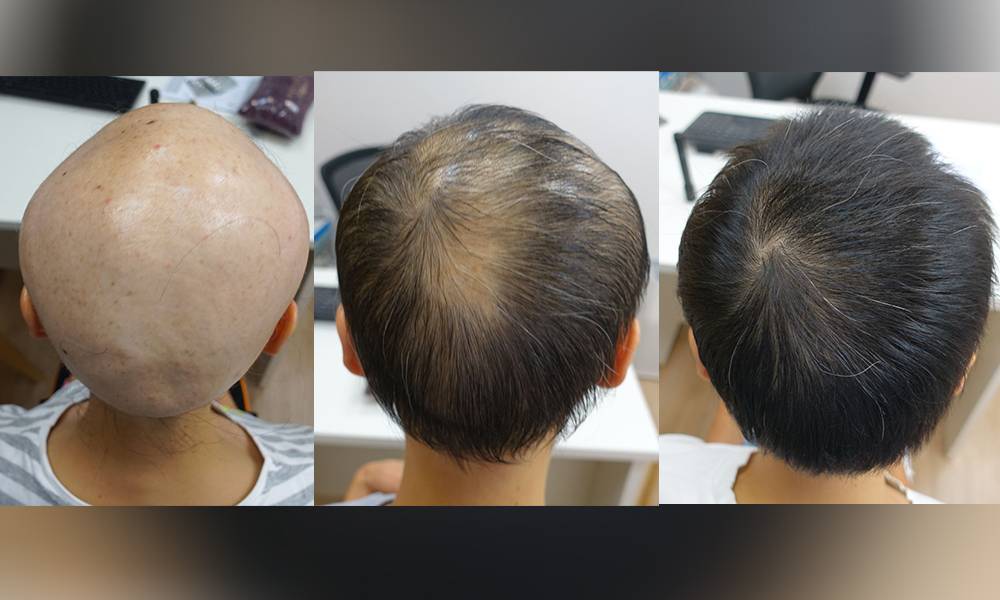Excessive scalp 脫髮 is a severe challenge to a woman’s self image and her standing in business and society. Although we usually think of balding as a man’s problem, women actually make up forty percent of the people in North America experiencing the distress of excessive hair loss. Many women losing significant scalp hair have Polycystic Ovarian Syndrome. Safe, effective, natural therapies that treat the hormone imbalances related to PCOS will also restore your hair to optimal health. I am delighted to offer you these indispensable tools to help you restore your hair and your health.
Women experiencing 脫髮 lose ground fast in today’s world. At work and in her personal life a woman’s appearance has much to do with her financial and social success. Men may also prefer not to go bald. But since balding is know to be cause by high levels of testosterone, a bald man may be credit with extra virility. There is no such happy story for balding women. The appearance of thinning scalp hair translates to a significant loss of personal power for women.
The medical community in general treats women’s hair loss as a minor health issue. Most physicians have little inclination to address the emotional distress you feel. In many cases physicians treat balding as if it were “only” a vanity issue; they may not recognize hair loss as a red flag pointing to serious metabolic conditions, including PCOS.
The psychological pain of 活髮療程 and its effect on our sense of empowerment is as devastating as any disfiguring disease. If you are a balding woman, your hair loss is a life altering condition with profound consequences for your health. Getting your hands on the wheel and driving yourself toward a solution for hair loss is the first step toward reviving your sense of personal strength and power. If hair loss is part of PCOS, the effort you make to restore your physical health will also renew scalp hair growth.
You need expert help to properly diagnose the cause of your hair loss. Hair loss that could have been merely temporary may become permanent if you have a delayed or incorrect diagnosis. Misdiagnoses is perhaps the most frustrating aspect of hair loss for women. The information I present here will help you identify the cause of your hair loss and ideally lead you and your doctors to proper treatments for your kind of hair loss, sooner rather than later.
Alopecia is the medical term for excessive or abnormal hair loss 脫髮. There are different kinds of alopecia. What all hair loss has in common, whether it’s in men or women, is that it is always a symptom of something else that’s gone wrong. Your hair will remain on your head where it belongs if hormone imbalance, disease, or some other condition is not occurring. That condition may be as simple as having a gene that makes you susceptible to male or female pattern baldness. Or it may be as complex as a whole host of diseases.
Hair loss may be a symptom of a short-term event such as stress, pregnancy, or a side effect of certain medications. In these situations, hair grows back when the event has passed. Substances including hormones and medication can cause a change in the hair growth patterns. When this happens, growth and shedding occur at the same time. Once the cause is dealt with, hairs go back to their random pattern of growth and shedding, and balding stops.
Today more women than ever are experiencing hair loss 脫髮. The causes are typically quite different that what causes balding in men. According to the American Academy of Dermatology, some 30 million women. The United States are experiencing some degree of distressing scalp hair loss. The most common causes of scalp hair loss in women can include:




